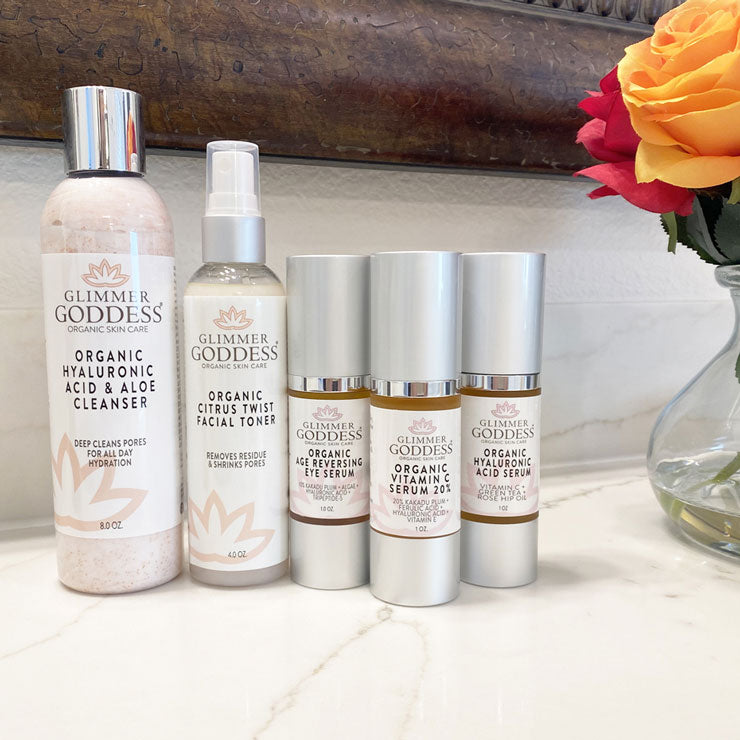
Soothing Winter Remedies: Skincare for Eczema in the Cold Months
Discover effective skincare strategies to manage eczema during the harsh winter months. Learn how to keep your skin hydrated, healthy, and comfortable despite the challenges of the cold season.
Keeping Your Skin Hydrated and Healthy During Winter
What are the common causes of eczema flare-ups in winter?
Eczema, a chronic skin condition characterized by red, itchy, and inflamed skin, can be especially challenging to manage during the winter months. The colder, drier air that comes with this season can exacerbate the symptoms of eczema, leading to increased discomfort and frustration for those who suffer from it.
The primary reasons why eczema tends to worsen in winter include:
- Decreased humidity levels in the air, which can cause the skin to lose moisture and become drier, leading to increased irritation and inflammation.
- Exposure to cold temperatures, which can cause the skin to become more sensitive and prone to irritation.
- The use of hot water for bathing and showering, which can strip the skin of its natural oils and lead to dryness.
- Wearing heavy, wool, or synthetic fabrics that can irritate the skin and exacerbate eczema symptoms.
- Increased use of harsh soaps and detergents, which can further strip the skin of its natural protective barrier.
By understanding the common triggers of eczema flare-ups during the winter, individuals can take proactive steps to maintain healthy, hydrated skin and minimize the discomfort associated with this chronic condition.
How does cold weather affect sensitive skin?
The cold, dry air of winter can wreak havoc on sensitive skin, leading to a range of unpleasant symptoms. From increased dryness and irritation to a heightened risk of developing conditions like eczema or rosacea, the colder months can pose significant challenges for those with delicate complexions.
Some of the ways in which cold weather can impact sensitive skin include:
- Dehydration: The dry air caused by colder temperatures can strip the skin of its natural moisture, leading to dryness, flakiness, and a compromised skin barrier.
- Increased sensitivity: The harsh, cold winds can cause the skin to become more reactive and prone to redness, inflammation, and discomfort.
- Exacerbation of existing conditions: For those with pre-existing skin conditions like eczema or rosacea, the cold weather can trigger flare-ups and worsen symptoms.
- Accelerated aging: The combination of dry air and harsh environmental factors can contribute to premature aging, with an increase in the appearance of fine lines, wrinkles, and loss of elasticity.
By implementing a comprehensive winter skincare routine and taking steps to protect the skin from the elements, individuals with sensitive complexions can maintain a healthy, radiant glow even during the coldest months of the year.
Why is hydration crucial during winter months?
Maintaining adequate hydration is essential for the skin's health and function, and this becomes even more critical during the winter months when environmental factors can strip the skin of its natural moisture.
The importance of hydration during the winter can be attributed to several key factors:
- Combating dryness: The cold, dry air of winter can lead to excessive water loss from the skin, causing it to become dry, flaky, and prone to irritation. Proper hydration helps to replenish and retain moisture, keeping the skin soft, supple, and comfortable.
- Supporting the skin barrier: The skin's natural protective barrier is crucial for shielding it from external aggressors and locking in moisture. Dehydration can weaken this barrier, leaving the skin vulnerable to environmental stressors and increasing the risk of inflammation and irritation.
- Promoting healthy cell turnover: Adequate hydration is necessary for the skin's regenerative processes, ensuring that new, healthy cells are continuously being produced to replace old, damaged ones. This can help to improve the skin's overall appearance and reduce the visible signs of aging.
- Reducing the risk of eczema flare-ups: For those with eczema, maintaining proper hydration is crucial for managing symptoms and preventing exacerbations. Dry skin is more prone to cracking and inflammation, which can trigger eczema flare-ups.
By prioritizing hydration through the use of moisturizing products, frequent water intake, and protective measures against the elements, individuals can help to keep their skin healthy, radiant, and resilient during the winter months.
Managing Eczema in the Winter: A Comprehensive Guide
What ingredients should I look for in products for eczema?
When dealing with eczema, it's crucial to be mindful of the ingredients in the products you use, as certain substances can exacerbate the condition. Here are some key ingredients to look for and avoid when selecting products for your eczema-prone skin.
Ingredients to Look For
- Ceramides: These lipids help restore the skin's natural barrier, which is often compromised in eczema patients.
- Colloidal Oatmeal: This natural ingredient has anti-inflammatory and soothing properties, making it an excellent choice for eczema-prone skin.
- Hyaluronic Acid: This humectant helps to deeply hydrate the skin, reducing the risk of further irritation.
- Glycerin: A gentle, moisturizing ingredient that can help lock in hydration and prevent water loss.
Ingredients to Avoid
- Fragrances: Synthetic fragrances can be highly irritating and trigger eczema flare-ups.
- Alcohol: Alcohol-based products can strip the skin of its natural oils, leading to dryness and increased irritation.
- Sulfates: These harsh cleansing agents can disrupt the skin's delicate pH balance and exacerbate eczema.
- Parabens: These preservatives have been linked to skin irritation and may contribute to eczema symptoms.
By carefully selecting products with eczema-friendly ingredients and avoiding potential irritants, you can help soothe and protect your skin during the winter months.
How often should I apply moisturizer in the winter?
Maintaining a consistent moisturizing routine is crucial for managing eczema, especially during the drier, colder months of winter. However, the frequency of application may vary depending on your individual skin's needs.
Recommended Moisturizing Frequency
- Morning and Evening: Applying a gentle, fragrance-free moisturizer twice a day, once in the morning and once in the evening, is a good starting point.
- After Bathing: It's important to moisturize immediately after bathing or showering, when the skin is still damp, to lock in hydration.
- As Needed: If you experience excessive dryness or flare-ups, you may need to apply moisturizer more frequently throughout the day.
Tips for Effective Moisturizing
- Use Thick, Creamy Formulas: Opt for thick, emollient-rich creams or ointments, as they provide more intense hydration and create a protective barrier on the skin.
- Apply to Damp Skin: Applying moisturizer to slightly damp skin helps to seal in moisture and prevent further water loss.
- Experiment with Occlusive Layers: Consider using an occlusive product, such as petroleum jelly or a similar ointment, as the final step in your routine to trap moisture.
- Reapply as Needed: Check your skin throughout the day and reapply moisturizer as needed, especially in areas that feel particularly dry or irritated.
Consistent and conscientious moisturizing is key to maintaining healthy, hydrated skin and managing eczema during the winter season.
What role does diet play in managing eczema during cold months?
While managing eczema primarily involves maintaining a consistent skincare routine, your diet can also play a significant role in controlling symptoms, especially during the colder winter months.
Eczema-Friendly Foods
- Omega-3 Rich Foods: Fatty fish, such as salmon and mackerel, as well as walnuts and flaxseeds, are rich in anti-inflammatory omega-3 fatty acids, which can help reduce eczema flare-ups.
- Probiotic-Containing Foods: Yogurt, kefir, and fermented vegetables are excellent sources of probiotics, which can help support a healthy gut microbiome and alleviate eczema symptoms.
- Antioxidant-Rich Produce: Fruits and vegetables like berries, leafy greens, and sweet potatoes are packed with antioxidants that can help combat inflammation.
Foods to Avoid
- Processed and Fried Foods: These foods are often high in inflammatory omega-6 fatty acids and can exacerbate eczema symptoms.
- Refined Carbohydrates: White bread, pasta, and sugary snacks can trigger spikes in blood sugar, leading to increased inflammation.
- Common Allergens: Foods like dairy, eggs, wheat, and nuts are common eczema triggers for many people, so it's essential to identify and eliminate any personal allergens.
Hydration and Eczema
- Drink Plenty of Water: Proper hydration is crucial for maintaining skin health and preventing eczema flare-ups, especially during the dry winter months.
- Limit Dehydrating Beverages: Avoid or minimize your intake of caffeine and alcohol, as they can contribute to skin dryness and exacerbate eczema symptoms.
By incorporating eczema-friendly foods into your diet, staying hydrated, and avoiding potential trigger foods, you can help manage your eczema and find relief during the cold winter season.
In conclusion, managing eczema in the winter requires a multi-faceted approach, including carefully selecting skincare products, maintaining a consistent moisturizing routine, and paying attention to your diet. By following these guidelines, you can help soothe your skin, reduce flare-ups, and enjoy the winter months with greater comfort and confidence.
The Winter Wardrobe: Alleviating Eczema's Chill
How can clothing choices impact eczema during winter?
As the temperature drops and the winds bite, individuals with eczema face an additional challenge in managing their skin condition. The right clothing choices can make a significant difference in providing relief and preventing flare-ups.
Selecting the Optimal Fabrics
- Opt for breathable, natural fibers such as cotton, silk, or bamboo, which are less likely to irritate sensitive skin.
- Avoid synthetic materials like polyester, which can trap heat and moisture, exacerbating eczema symptoms.
- Incorporate soft, hypoallergenic fabrics like organic cotton or bamboo into your winter wardrobe.
- Choose loose, comfortable clothing that doesn't rub or chafe the skin.
Layering for Comfort and Protection
- Layer clothing to regulate body temperature and prevent sudden changes in warmth or coolness.
- Use soft, breathable base layers to wick away moisture and keep the skin dry.
- Add middle layers, such as sweaters or jackets, to provide insulation without trapping heat.
- Finish with a lightweight, wind-resistant outer layer to shield against the elements.
Prioritizing Skin-Friendly Accessories
- Select gloves, scarves, and socks made from natural, soft materials to avoid irritation.
- Opt for accessories that cover exposed skin, protecting it from harsh winter conditions.
- Consider using humidifiers to maintain optimal indoor humidity levels, which can soothe eczema-prone skin.
By thoughtfully curating a winter wardrobe that prioritizes skin health, individuals with eczema can find relief and regain confidence in their ability to navigate the colder months.
What home remedies can soothe eczema-prone skin?
Beyond carefully selecting clothing, there are several effective home remedies that can provide relief and support the healing process for eczema-affected skin.
Gentle Cleansing and Moisturizing
- Use fragrance-free, mild cleansers to avoid further irritation.
- Apply thick, creamy moisturizers immediately after bathing to lock in hydration.
- Incorporate emollient-rich ingredients like shea butter, ceramides, or colloidal oatmeal into your skincare routine.
- Avoid hot water, which can strip the skin of its natural oils and exacerbate dryness.
Soothing Baths and Compresses
- Add colloidal oatmeal, baking soda, or epsom salts to lukewarm bathwater to calm inflammation.
- Apply cool, damp compresses to affected areas to alleviate itching and discomfort.
- Gently pat the skin dry after bathing or using compresses to avoid further irritation.
Dietary Considerations
- Incorporate anti-inflammatory foods rich in omega-3s, such as fatty fish, walnuts, and flaxseeds.
- Identify and avoid potential trigger foods that may exacerbate eczema symptoms.
- Stay hydrated by drinking plenty of water throughout the day.
Botanical Remedies
- Use topical creams or oils containing soothing ingredients like aloe vera, chamomile, or calendula.
- Explore the use of essential oils, such as lavender or tea tree oil, in diluted form for their calming properties.
- Consult with a healthcare professional before trying any new botanical treatments.
By incorporating these gentle, natural remedies into your daily routine, you can help soothe and nourish eczema-prone skin, providing much-needed relief.
Why is stress management essential for eczema relief?
Managing stress is a crucial component of effectively managing eczema, as emotional wellbeing and skin health are intricately linked.
The Eczema-Stress Connection
- Stress can trigger the release of inflammatory hormones, leading to increased skin irritation and eczema flare-ups.
- Heightened stress levels can also compromise the skin's barrier function, making it more susceptible to irritants and infections.
- Chronic stress can disrupt the body's natural healing processes, prolonging the recovery time for eczema-affected areas.
Stress-Reducing Techniques
- Practice mindfulness, meditation, or deep breathing exercises to calm the mind and body.
- Engage in regular physical activity, such as yoga or light exercise, to release tension and promote relaxation.
- Prioritize self-care activities that bring you joy and a sense of tranquility.
- Seek support from friends, family, or a mental health professional to manage stress effectively.
Addressing Emotional Wellbeing
- Recognize and address any underlying emotional factors that may be contributing to eczema flare-ups.
- Explore creative outlets, such as journaling or art therapy, to express and process difficult emotions.
- Develop healthy coping mechanisms to navigate stressful situations without exacerbating skin conditions.
- Consider the role of therapy or counseling in addressing the psychological aspects of eczema management.
By implementing effective stress management strategies and nurturing emotional wellbeing, individuals with eczema can achieve a more holistic approach to managing their skin condition and improving their overall quality of life.
Soothe, Heal, and Radiate: Discovering the Power of Organic Eczema Lotion
Organic Eczema Lotion - Stop the Itch, Heal The Skin
Eczema, a frustrating skin condition, can leave you feeling self-conscious and uncomfortable. But with the right solution, you can find relief and restore your skin's healthy glow. Introducing Organic Eczema Lotion - Stop the Itch, Heal The Skin, a revolutionary formula designed to soothe, hydrate, and heal even the most stubborn eczema flare-ups.
This potent lotion combines the power of French Green Clay and Tamanu Oil to provide a complete solution for your eczema woes.
- French Green Clay: This highly absorbent clay helps to draw out impurities, reduce inflammation, and alleviate the intense itching associated with eczema. Its gentle, non-drying properties make it an ideal ingredient for sensitive skin.
- Tamanu Oil: Known for its remarkable anti-inflammatory and antimicrobial properties, Tamanu Oil helps to reduce redness, swelling, and bacterial exposure, accelerating the healing process of eczema-affected areas.
- Organic Ingredients: Formulated with only the highest-quality, plant-based ingredients, this lotion is free from harsh chemicals, fragrances, and synthetic additives that can further irritate sensitive skin.
- Soothing Texture: The luxuriously creamy, yet lightweight formula absorbs quickly, delivering instant relief and long-lasting hydration without leaving a greasy residue.
- Suitable for All Ages: Whether you're struggling with eczema as a child or an adult, this versatile lotion is suitable for use on all skin types and ages, providing a safe and effective solution for the whole family.

Shop Organic Eczema Lotion Now
Say goodbye to the endless cycle of flare-ups and discomfort with Organic Eczema Lotion - Stop the Itch, Heal The Skin. Nourish your skin, soothe your senses, and reclaim your confidence with this transformative solution. Experience the relief and radiance your skin deserves. 🌱✨
Q&A
What are the common causes of eczema flare-ups during winter?
Eczema flare-ups in winter are often triggered by decreased humidity, exposure to cold temperatures, hot water bathing, irritating fabrics, and harsh soaps. Understanding these factors helps in managing eczema effectively.
How does cold weather affect sensitive skin?
Cold weather can lead to increased dryness, sensitivity, exacerbation of skin conditions like eczema or rosacea, and accelerated aging. Protective skincare measures can help combat these effects on sensitive skin.
Why is hydration crucial during winter months?
Hydration is essential in winter to combat dryness, support the skin barrier, promote healthy cell turnover, and reduce the risk of eczema flare-ups. Prioritizing hydration helps maintain healthy, resilient skin.
What ingredients should I look for in products for eczema?
Ceramides, colloidal oatmeal, hyaluronic acid, and glycerin are beneficial for eczema-prone skin. Avoid fragrances, alcohol, sulfates, and parabens in skincare products to prevent exacerbating eczema symptoms.
How often should I apply moisturizer in winter?
Applying moisturizer twice a day, after bathing, and as needed throughout the day is recommended for managing eczema in winter. Opt for rich, emollient creams and ointments for intense hydration and skin protection.
By implementing a comprehensive winter skincare routine and adopting healthy lifestyle practices, you can effectively manage eczema and enjoy smoother, more comfortable skin throughout the winter season.







